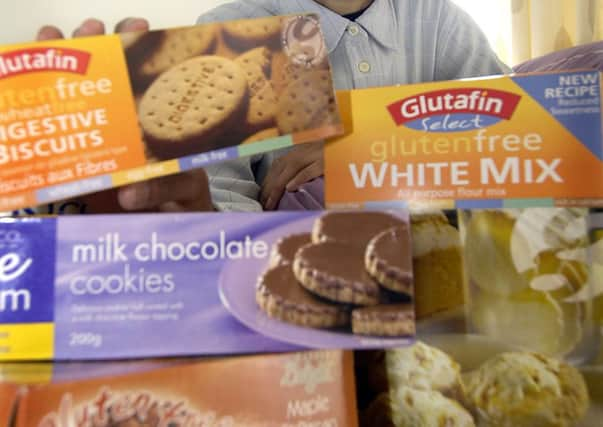Children with coeliac disease can enjoy a full social life


Being diagnosed with coeliac disease and moving to a gluten-free diet at any age can be challenging. Some take to it quite easily, others find it an ongoing battle. Coeliac UK supports people in that transition to the new diet, offering information on the wide range of foods that are suitable and giving advice on how to eat out with confidence. We find that, over time, people can adapt really well.
For children with coeliac disease, the challenges are the same as for anyone but with the additional difficulties associated with growing up. Children do not wish to feel “different” and with food being such a social experience, feelings of exclusion can easily develop if they cannot eat the same as their friends or eat in the same venues. This can be particularly difficult for those diagnosed in their teens, when peer pressure can be at its strongest. Also, children tend not to be in full control over what they eat, especially those of primary school age. Decision-making is shared with, or indeed, led by parents seeking a safe gluten-free route for their child as they attend school, go to friends’ birthday parties or head off on holidays – three of the main dietary challenges for children with coeliac disease.
Advertisement
Hide AdAdvertisement
Hide AdFirstly, school. Many fun activities in the school setting involve food, such as bake sales, summer barbecues and school trips. Parents of children with coeliac disease will be familiar with examples of schools overlooking the needs of their child during such activities, leaving the child not just without anything to eat but, worse, coming home feeling excluded having had to watch their friends enjoy eating while they had nothing. Our advice to parents is to work closely with the school so they are given advance notice of food-based activities, allowing time for alternative, inclusive plans to be made. To assist, Coeliac UK has produced a school information pack which can be found on our website.
It is also the case that in many schools across Scotland, gluten-free options (over and above a baked potato) are hard to come by on the dinner menu, excluding children with coeliac disease from having school dinners like other pupils. Coeliac UK recently worked with Fife Council to improve their options for primary school pupils on a gluten-free diet, and were impressed by the very receptive response to making the changes required. Simple things such as removing gluten from stock and from sauces and changing gluten-containing dishes such as sausages to a non-gluten containing equivalent, has opened up the menu for pupils with coeliac disease, allowing them to benefit from the rich social experience of eating the same dishes as their friends.
Secondly, social events. Birthday parties are tricky for children with coeliac disease – think of all those cakes, biscuits, pasta and pastries. Such occasions should be a time of excitement for the child, not a time for worrying about what they can or can’t eat. Our advice is for parents to speak to the host in advance to see what alternative arrangements can be made – quite often this means the child takes their own food to the party. When it comes to receiving birthday cake, which will likely contain gluten, our advice is to supply a separate gluten-free alternative such as a cupcake, and arrange for the host to hand it out at the same time as the other children get their cake to maximise the sense of inclusion. Coeliac UK has lots of tips for hosting and attending children’s parties for those with coeliac disease on our website.
Thirdly, holidays. Going on holiday is a step into the unknown for a child with coeliac disease, as they and their parents are away from the safety blanket of the shops they know and eating-out venues they trust at home. Will the local shops stock gluten free food? Do local restaurants and cafes cater for gluten-free meals? Will language be a barrier to getting good gluten-free options that are safe for my child to eat? Our advice is to do as much research as you can in advance using the information on holidays and gluten-free that we have put together on our website.
Children with coeliac disease need help navigating their gluten-free diet through a range of social and educational situations until they are confident enough to make decisions for themselves. Coeliac UK is there for them and their parents to help make that navigation easier. Visit our website to find out more.
• Myles Fitt is Scotland Lead, Coeliac UK www.isitcoeliacdisease.org.uk www.coeliac.org.uk/children
SEE ALSO